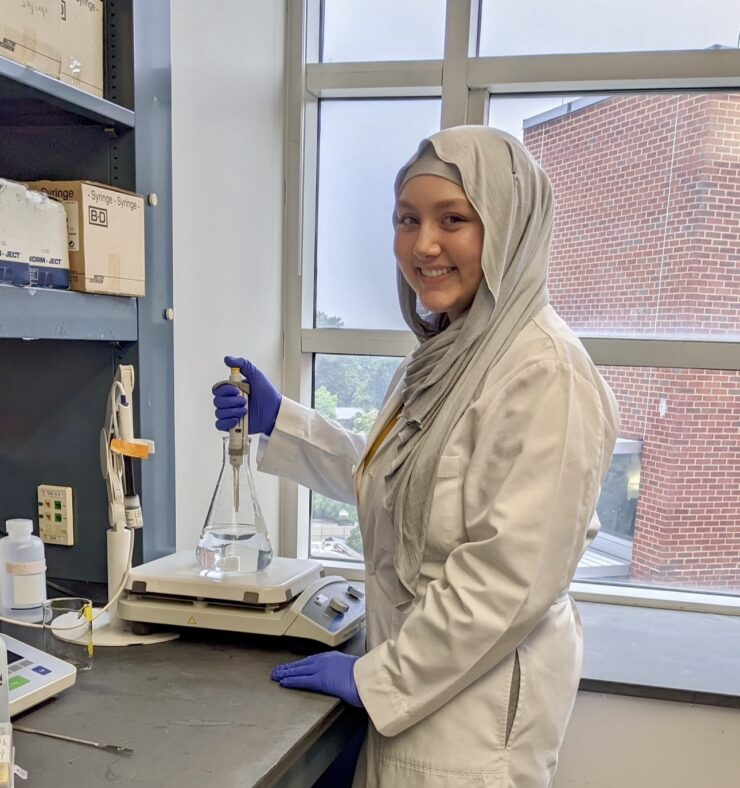The Summer Undergraduate Research Creativity Fellowships provide undergraduates with an opportunity to study a wide variety of disciplines through self-directed work under a faculty mentor. The Student Sustainability Council collaborates with the Office of Undergraduate Research in order to promote projects that will make a significant contribution to the student’s academic growth while simultaneously contributing to the sustainability-focused research initiatives at the University of Kentucky and the community beyond. This collaboration aids in making the pursuit of sustainability goals an integral part of the UK student experience, which is one of UK’s sustainability guiding principles.
Safiyah Sadek
This summer, I am excited and honored to conduct a much-needed study that has
the potential to bring about positive change to our understanding of the impact of
environmental pollution caused by the hazardous chemical combustion of e-cigarettes on
the environment and its subsequent impact on neuronal health, which are mostly
unknown. Although the use of traditional cigarettes reached historic lows, e-cigarettes
have seen an alarming increase in use, especially among youth and adults who have never smoked before.
Additionally, e-cigarette vapors are becoming an increasingly common source of
environmental pollution through improper discarding of unreusable plastic pods,
electronic waste, and releasing toxins and hazardous chemicals as the flavorants are
heated. Moreover, e-cigarette use is associated with serious diseases to the user and
those around them, such as interfering with brain development, increased blood pressure,
immune system suppression, DNA damage and inflammation, and cancer.
What adds to the concerns is that nicotine cessation is disproportionately more
difficult in women compared to men and the impact of oral contraceptives on cessation.
Historically, clinical trials typically excluded female subjects until 1993, but no such
requirement was made for preclinical research. This exclusion leaves a significant gap in
our understanding of the impact of many drugs and is severely understudied in the context of e-cigarettes.
It is my goal to shed light on the impacts of vaping and understand how e-cigarettes
impact the brain, especially in the presence of oral contraceptives. I aim to contribute to
the well-being of individuals in our communities while advancing global efforts toward
achieving a more sustainable commonwealth. This project feels special to me because it
not only promotes inclusivity and a better understanding of women’s health in research,
but it also will contribute to a healthier, more sustainable future for all.



























